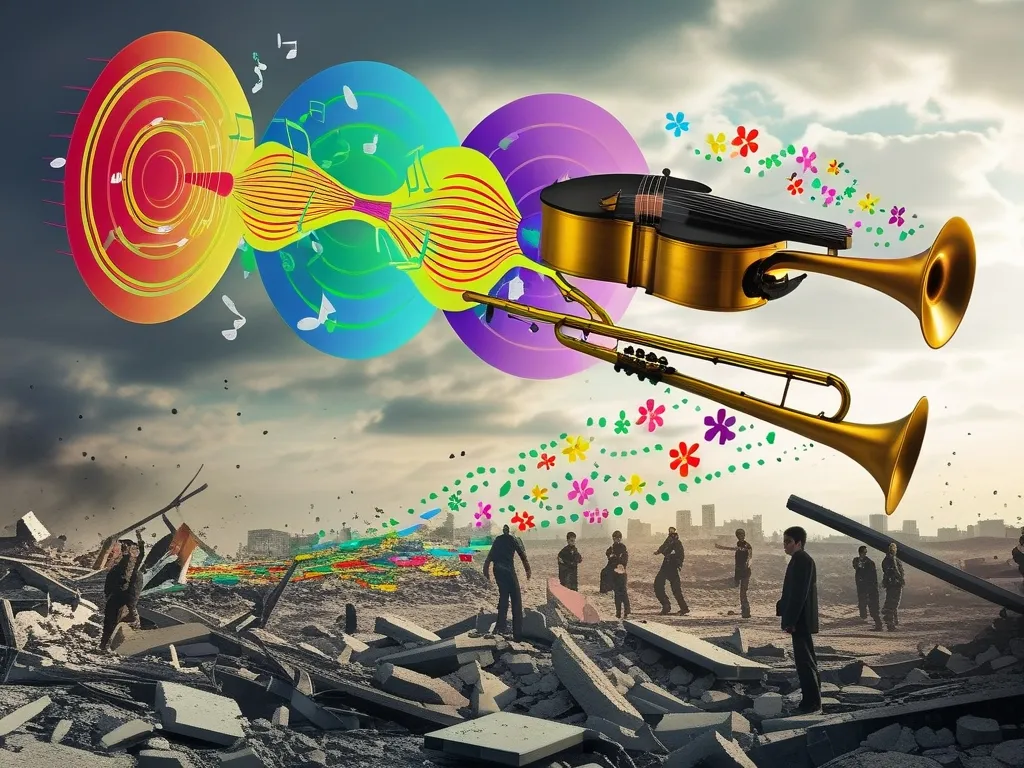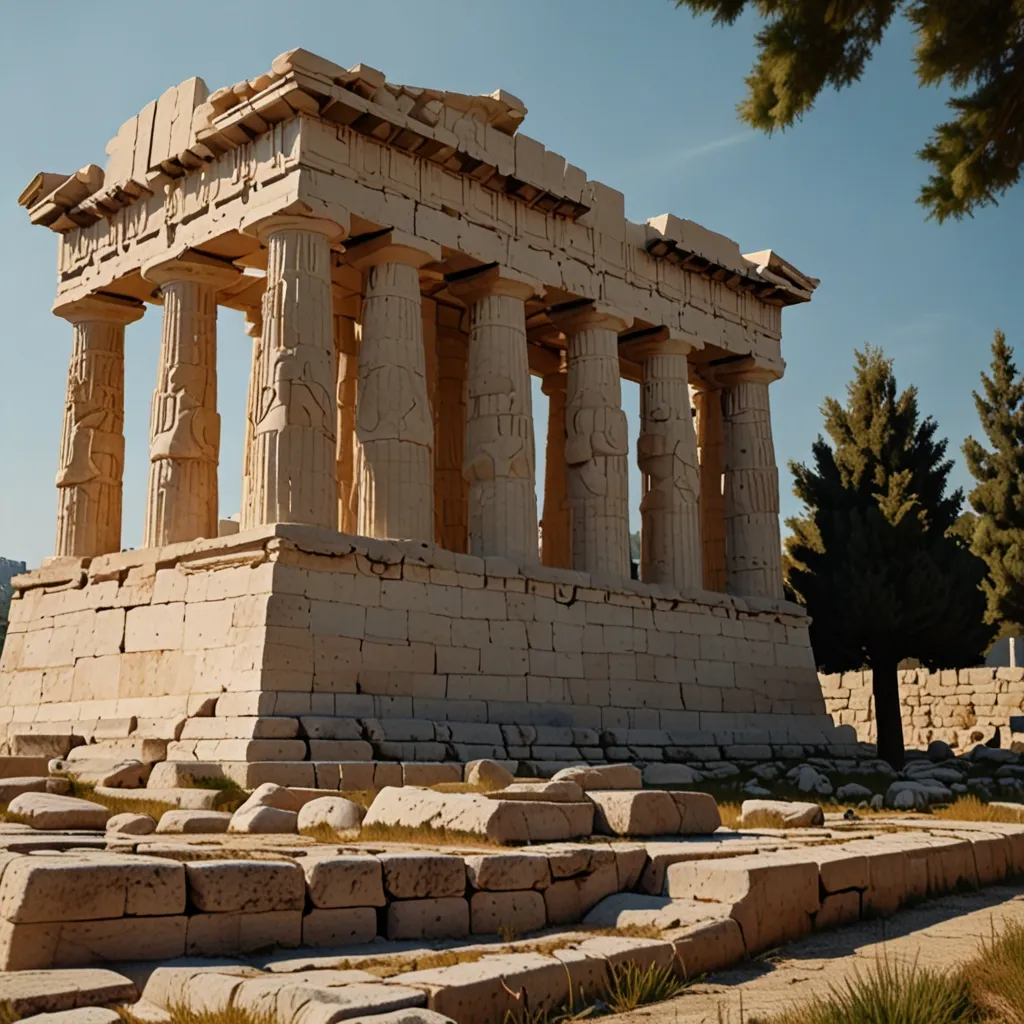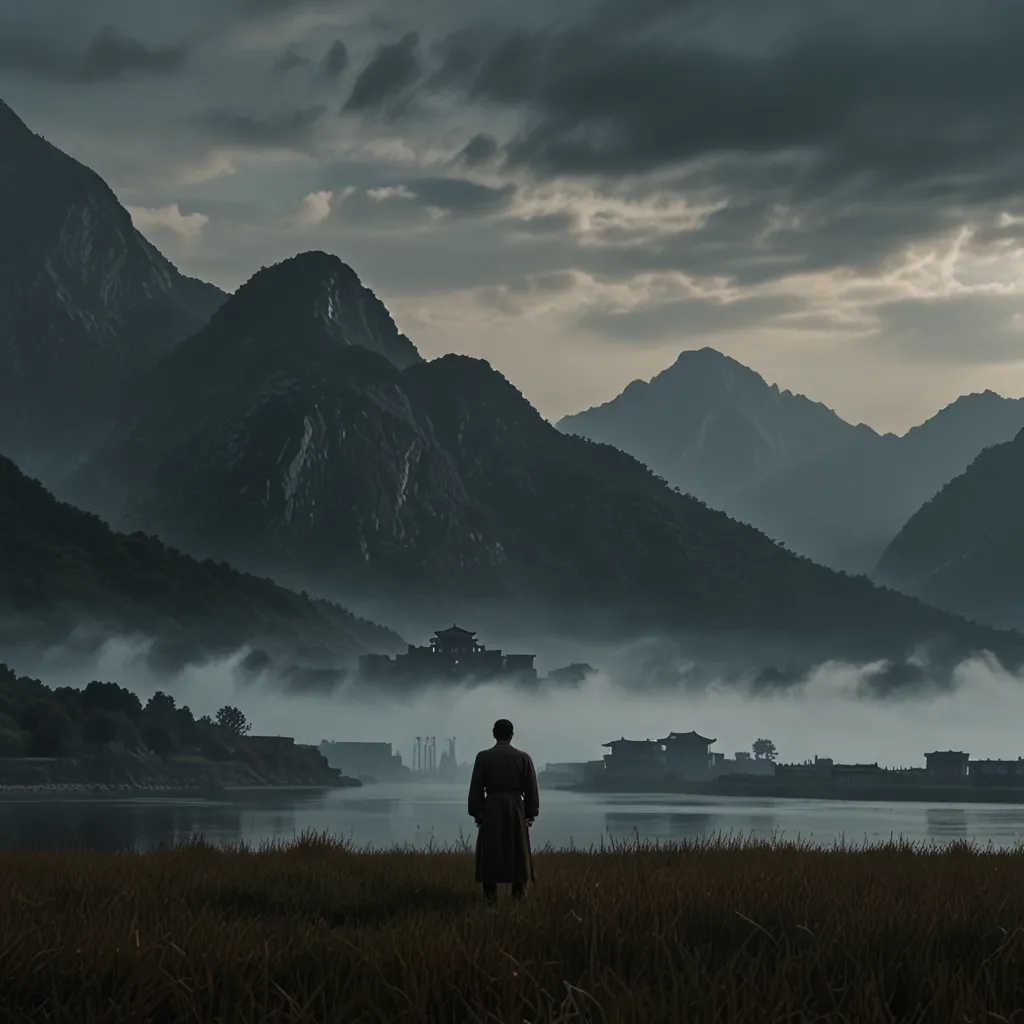In the midst of conflict and turmoil, music has long been a beacon of hope and resilience. From the war-torn regions of Artsakh to the traditional landscapes of Georgia, music serves as more than just a form of expression; it is a cultural anchor, a tool of resistance, and a source of solace.
In Artsakh, a region embroiled in political limbo and the constant threat of war, music has survived and even thrived despite the adversity. Here, music is not just a hobby or a form of entertainment; it is a way of life. The Shushva Band, named after the hometown of Shushi, is one of the few blues and rock & roll bands in the area. Their music is raw and honest, reflecting the harsh realities of life in Artsakh. For Caspian, the band’s lead, rock & roll is more than just music; it is a path to independence and freedom. It gives people the trust in themselves to take control of their lives, a sentiment that resonates deeply in a place where freedom is a hard-won battle.
The impact of music in Artsakh extends beyond the realm of rock & roll. In the heart of Stepanakert, the Sayat-Nova Music College has been a symbol of resilience. Even during the worst moments of war, when bombs were falling and fear gripped the city, the college continued to function. Professors and students alike found solace in music, using it as a way to represent themselves and their culture. For people like Arsen Safaryan, a child musical prodigy, music was not just a passion but a lifeline. The college, though severely affected by the war, managed to revive itself, and today it stands as a testament to the enduring power of music.
In Georgia, traditional music has played a similar role. The country’s rich musical heritage is characterized by complex polyphonic singing, a tradition that has been passed down through generations. This music is not just about entertainment; it is a way of connecting with the past and preserving cultural identity. The songs often tell stories of struggle and survival, echoing the experiences of the people who sing them. These traditional melodies have a way of uniting communities, providing a sense of continuity and stability in times of turmoil.
The story of music as a tool of resilience is not unique to these regions. In Israel, during the recent conflicts with Hamas, music has become a powerful medium for expressing rage, hope, and resilience. Songs that capture the psyche of Israeli society during these challenging times have become anthems of survival. These songs are not just about the current conflict; they are about the collective memory of a nation that has faced numerous challenges throughout its history.
Music also serves as a subtle form of resistance. In times of war, when freedom of expression is often curtailed, music can be a way to convey messages that might otherwise be silenced. For instance, in Artsakh, the lyrics of rock & roll songs often reflect the desire for independence and the frustration with the current political situation. These songs are not just about entertainment; they are about inspiring people to believe in themselves and their ability to change their circumstances.
The power of music to unite communities cannot be overstated. In war-torn regions, music often becomes a common language that transcends political and cultural divides. It brings people together, providing a sense of community and shared identity. For example, in Georgia, traditional music festivals are a time for people to come together, celebrate their heritage, and find solace in the company of others.
Moreover, music is a way to preserve history and cultural heritage. Traditional songs and melodies are often passed down through oral tradition, serving as a living archive of a community’s history and culture. In Artsakh, the preservation of classical music is seen as crucial to the region’s identity. Despite the challenges posed by war, institutions like the Sayat-Nova Music College continue to teach and promote classical music, ensuring that this cultural heritage is not lost.
The personal impact of music on individuals living through conflict is profound. It offers a way to process emotions, find solace, and maintain hope in the face of adversity. For Frank Turner, a British punk-folk singer, music has been a way to reflect on his own struggles and those of others. His album “Undefeated” draws parallels with the story of Job from the Bible, highlighting themes of resilience and faith in the face of suffering. Turner’s music is not just about his personal experiences; it is about the universal human struggle to find meaning and hope in difficult times.
In conclusion, music is more than just a form of expression; it is a powerful tool for survival and resilience. Whether it is traditional polyphonic singing in Georgia, rock & roll in Artsakh, or contemporary songs in Israel, music has the ability to unite communities, preserve cultural heritage, and offer solace in times of turmoil. It is a testament to the human spirit’s ability to find hope and meaning even in the darkest of times.
As we navigate the complexities of modern conflicts, it is important to remember the role that music plays in human survival narratives. It is not just about the music itself but about the people who create it, the stories it tells, and the hope it inspires. In a world filled with conflict and uncertainty, music remains a beacon of light, a reminder of our shared humanity and our capacity for resilience and hope.






